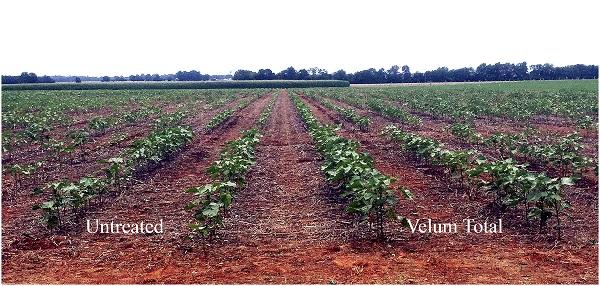
Credit: Kathy Lawrence
The reniform nematode is one of the most commonly found pests of cotton, with the ability to cause severe economic damage. In order to assess exactly how much damage the reniform nematode can cause, plant pathologists at Auburn University conducted a field trial comparing a clean field to a reniform-infested field.
To get the most accurate data, the plant pathologists began with one field experiencing the same conditions, including soil type and irrigation system. They then split the field in half, leaving a 10-foot grass strip in the center, and inoculated one side with the reniform nematode and left the other half clean. They planted ten cotton varieties on each half. They found that, averaged over two years, the cotton yields were 50 percent lower in the reniform field compared to the clean field.
They also experimented with the nematicide Velum Total and found it to be effective dependent on the environment. The nematicide supported a 55 percent increase in yield in 2017 but only 6 percent in 2018, in part due to the dry spring.
“This trial is unique because we can test varieties and nematicides with and without the reniform nematode under almost identical conditions in the field. We can truly measure the reniform nematode effect on yield and the real benefit of the nematicide,” said Kathy Lawrence, one of the plant pathologists involved in the study.
Lawrence advises growers to be careful not to allow the reniform nematode to establish in their fields. If they do discover nematodes, they should wash their equipment before moving to a clean field to prevent transfer.
###
To learn more about this study, read “Yield Loss of Cotton Cultivars Due to Rotylenchulus reniformis and the Added Benefit of a Nematicide” in the May issue of Plant Health Progress.
Media Contact
Ashley Bergman Carlin
[email protected]
Related Journal Article
http://dx.




